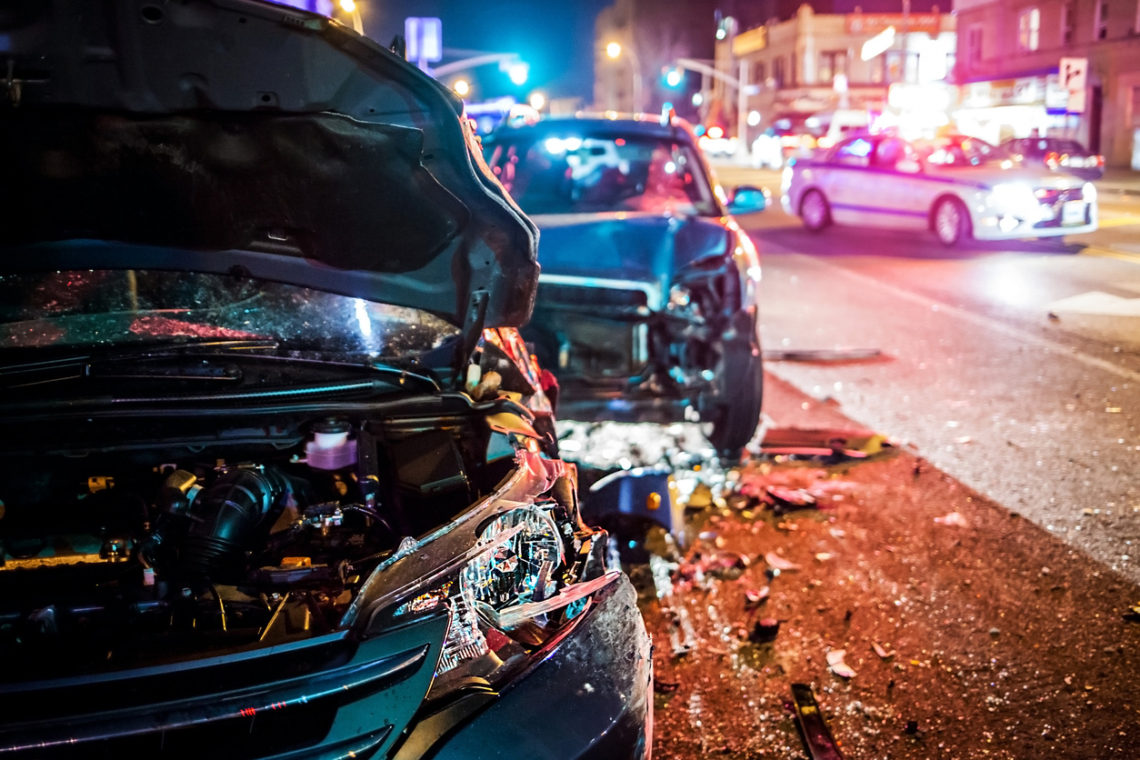
No matter how many times you’ve driven a specific road, driving at night is always more dangerous. A study from the National Safety Council found that while only about 28% of car crashes happen between 8 PM and 8 AM, nearly 48% of fatal car accidents happen during those same hours, which can be attributed to many factors, including lower visibility, fatigue, speeding, distracted driving, and more. As the days grow shorter, it’s crucial to know how to drive safely and be aware of night driving hazards. Knowing the risks can help save you from a horrible accident.
To help keep you safe on the road at night, it’s important to be aware of the top three dangers of driving at night and how to avoid them.
Top 3 Night Time Driving Hazards in Utah
While there are many things that contribute to dangerous night driving, the top three night time driving hazards are fatigue, poor vision, and impaired driving.
1. Fatigue
As your body prepares for its natural sleep cycle, your mind and body become tired. This can affect your decision making, slow your reaction time, and lower your ability to pay attention to the road.
There are many things that cause fatigue. A quality sleep deficit, long days, shift work, sleep disorders, or medications are just a few of the contributing factors. To ensure you’re not putting yourself and others at risk on the road, it’s important to know the signs of fatigued driving. This includes:
- Constant yawning or blinking
- Drifting or swerving from your lane or hitting the rumble strip
- Difficulty remembering the past few miles
2. Poor Vision
While you’re able to see clearly during the day, your ability to navigate the road at night is decreased as you’re not able to see as well. The reason is that your pupil remains small during the day, which allows light to enter directly into your pupil, providing a clear, focused image. At night, your pupil becomes large and light doesn’t enter your eye on a straight path. Because of this, you’re unable to see clearly.
If you’ve noticed that you have poor night vision, slight central vision problems, or peripheral vision problems, you’ll need to take extra precautions while driving at night. Getting a pair of specialty glasses that have a yellow tint or anti-reflective coating can help improve your night vision.
In addition to these steps, you may also want to try dimming your dashboard, keeping your windshield clean, and properly aim your headlights to provide maximum visibility.
3. Impaired Driving
Impaired driving is responsible for more than half of all car accidents. If you’re operating a vehicle while affected by alcohol, illegal drugs, distractions such as texting, drowsiness, or a medical condition, you’re an impaired driver. While dangerous in the day, each of these conditions is one of the biggest night driving hazards. They lower your concentration, decrease your coordination, inhibit judgment, slow reaction time, and lower your vision.
To ensure you’re not an impaired driver and putting yourself and others at risk for a car accident at night, it’s important to know both the signs of impaired driving and how to avoid it. If you notice any of the following signs while driving, your driving is impaired and you should pull over.
- Swerving, drifting, or weaving
- Responding slowly to traffic lights or signals
- Speeding or tailgating
- Nearly striking other vehicles or objects
To prevent impaired driving, avoid driving if you’ve consumed alcohol. Instead, use a rideshare service or have a friend drive. Additionally, don’t use your cellphone while driving as it takes your focus away from the road.
Reduce Your Risk of Getting in an Accident at Night
To lower the risk of getting into a nighttime accident, you should:
- Turn your headlights on at least an hour before sunset
- Keep your headlights clean
- Avoid any distractions
- Slow down
- Continuously check your mirrors for other motorists and animals
- Stay hydrated, alert, and awake
- Avoid driving at night if possible
When Accidents Happen
Even if you’re alert and awake on the road, you can still get into an accident caused by someone else who wasn’t paying attention. Should you get into a car accident at night and become injured, you’re entitled to compensation. To ensure you get the coverage you deserve, contact Ipson Law. Day or night, rain or shine, Ipson Law is ready and waiting to help with your personal injury case. Contact us today for a free consultation.

Michael is an attorney who started Ipson Law because of his passion for personal injury law. He graduated with a Juris Doctorate degree from McGeorge School of Law in Sacramento, CA. Learn more about Michael on our about us page, and contact Ipson Law to find out how we can help you.

